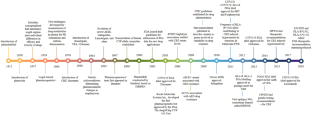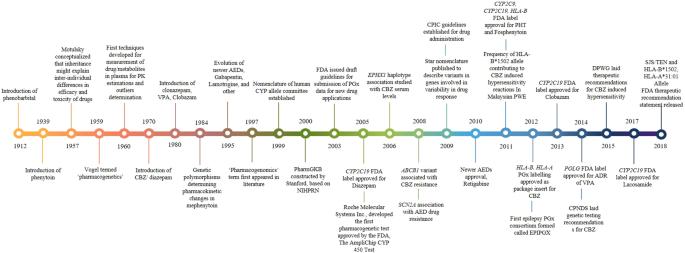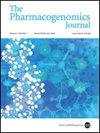Assessment of clinically actionable pharmacogenetic markers to stratify anti-seizure medications
IF 2.9
3区 医学
Q2 GENETICS & HEREDITY
引用次数: 0
Abstract
Epilepsy treatment is challenging due to heterogeneous syndromes, different seizure types and higher inter-individual variability. Identification of genetic variants predicting drug efficacy, tolerability and risk of adverse-effects for anti-seizure medications (ASMs) is essential. Here, we assessed the clinical actionability of known genetic variants, based on their functional and clinical significance and estimated their diagnostic predictability. We performed a systematic PubMed search to identify articles with pharmacogenomic (PGx) information for forty known ASMs. Functional annotation of the identified genetic variants was performed using different in silico tools, and their clinical significance was assessed using the American College of Medical Genetics (ACMG) guidelines for variant pathogenicity, level of evidence (LOE) from PharmGKB and the United States-Food and drug administration (US- FDA) drug labelling with PGx information. Diagnostic predictability of the replicated genetic variants was evaluated by calculating their accuracy. A total of 270 articles were retrieved with PGx evidence associated with 19 ASMs including 178 variants across 93 genes, classifying 26 genetic variants as benign/ likely benign, fourteen as drug response markers and three as risk factors for drug response. Only seventeen of these were replicated, with accuracy (up to 95%) in predicting PGx outcomes specific to six ASMs. Eight out of seventeen variants have FDA-approved PGx drug labelling for clinical implementation. Therefore, the remaining nine variants promise for potential clinical actionability and can be improvised with additional experimental evidence for clinical utility.


评估临床可操作的药理学标记物分层抗癫痫药物。
癫痫的治疗具有挑战性,这是由于不同的综合征、不同的癫痫发作类型和较高的个体间变异性。识别预测抗癫痫药物疗效、耐受性和不良反应风险的基因变异至关重要。在这里,我们根据已知基因变异的功能和临床意义评估了其临床可操作性,并估计了其诊断可预测性。我们进行了一项系统的PubMed搜索,以确定具有40种已知ASM的药物基因组(PGx)信息的文章。使用不同的计算机工具对已鉴定的遗传变异进行功能注释,并使用美国医学遗传学学会(ACMG)的变异致病性指南、PharmGKB的证据水平(LOE)和美国食品药品监督管理局(US-FDA)的PGx信息药物标签评估其临床意义。通过计算其准确性来评估复制基因变异的诊断可预测性。共检索到270篇文章,其中PGx证据与19种ASM相关,包括93个基因的178个变体,将26个遗传变体归类为良性/可能良性,14个作为药物反应标志物,3个作为药物响应的风险因素。其中只有17个被复制,在预测6个ASM特有的PGx结果方面的准确性(高达95%)。十七种变体中有八种具有美国食品药品监督管理局批准的PGx药物标签,用于临床实施。因此,剩下的九种变体有望具有潜在的临床可操作性,可以通过额外的实验证据即兴发挥临床效用。
本文章由计算机程序翻译,如有差异,请以英文原文为准。
求助全文
约1分钟内获得全文
求助全文
来源期刊

Pharmacogenomics Journal
医学-药学
CiteScore
7.20
自引率
0.00%
发文量
35
审稿时长
6-12 weeks
期刊介绍:
The Pharmacogenomics Journal is a print and electronic journal, which is dedicated to the rapid publication of original research on pharmacogenomics and its clinical applications.
Key areas of coverage include:
Personalized medicine
Effects of genetic variability on drug toxicity and efficacy
Identification and functional characterization of polymorphisms relevant to drug action
Pharmacodynamic and pharmacokinetic variations and drug efficacy
Integration of new developments in the genome project and proteomics into clinical medicine, pharmacology, and therapeutics
Clinical applications of genomic science
Identification of novel genomic targets for drug development
Potential benefits of pharmacogenomics.
 求助内容:
求助内容: 应助结果提醒方式:
应助结果提醒方式:


